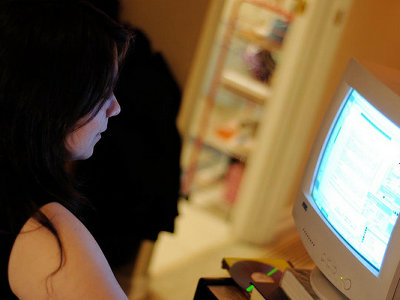The existence of "fictional friends" created by children turned out to be effective for improving problem solving skills

ByPaul Hocksenar
Young children often play "word play" by themselves, but this is "Private speech (private speech)It is a type of behavior called. In recent years, it has been discovered that private speech has various utilities such as increasing learning effect, but it became clear that many private speeches are done more than children with "fictional friends".
Individual differences in children's private speech: The role of imaginary companions
http://www.sciencedirect.com/science/article/pii/S0022096513001331
Children's Imaginary Friends Can Help Later in Life
http://online.wsj.com/news/articles/SB10001424052702303376904579135603062785122
Private speech - Wikipedia, the free encyclopedia
http://en.wikipedia.org/wiki/Private_speech
Private speech is a common behavior among children between 2 and 7 years old, and about 50 years ago, research began by Dr. Lev Vygotsky and Dr. Jean Piaget. Previous studies have shown that private speech has roles such as imagination, rehearsal, response, self-control, etc. besides simple word play,There is a correlation between the frequency of private speech and problem solving abilityIt has been revealed. Private speech becomes discreet and internal with about 7 years of age, but the act of "asking ourselves" is a continuing action even after becoming an adult, which makes a big role in solving various problems To fulfill is understood from the rule of thumb.

ByChristine Urias
It has been known that children 's private' spontaneously understood 'speech becomes active enough to talk with adults,Children who have "virtual friends" improve private speechIt became clear from research in the UK. The results of this research are published in the November issue of Child Psychology Journal.
It is common for small children to make friends in the world of imagination and enjoy "conversation", but in order to study the relationship between "virtual friends" and "private speech", Dr. Paige E. Davis of Durham University , Dr. Charles Fernyhough and Dr. Elizabeth Meins at York University have set up an ice cream parlor with a toy and invited 148 five year old children and mothers here. While the mother was in a reading space in a corner of the room, all the children played with a toy of the floor, the situation was photographed with two cameras and a private speech behavior was observed.

ByHorizontal.integration
Apart from behavior observation, the children individually asked questions such as "Do you have virtual friends?" "What is their friend's name and age?" As a result of the question, I found that there are fictitious friends in 46% of almost half of the children who gathered. Furthermore, half of the mothers are aware of their friends.
As a result of comparing the observation at the ice cream parlor with the answer to the individual question,Children who have imaginary friends make twice as many private speeches at free time compared to children who do not have themI understood that. The researchers believe that the results of this experiment suggest that involvement with friends in the virtual space plays the same role as social exchanges with people in the real world.
Related Posts:
in Science, Posted by darkhorse_log







